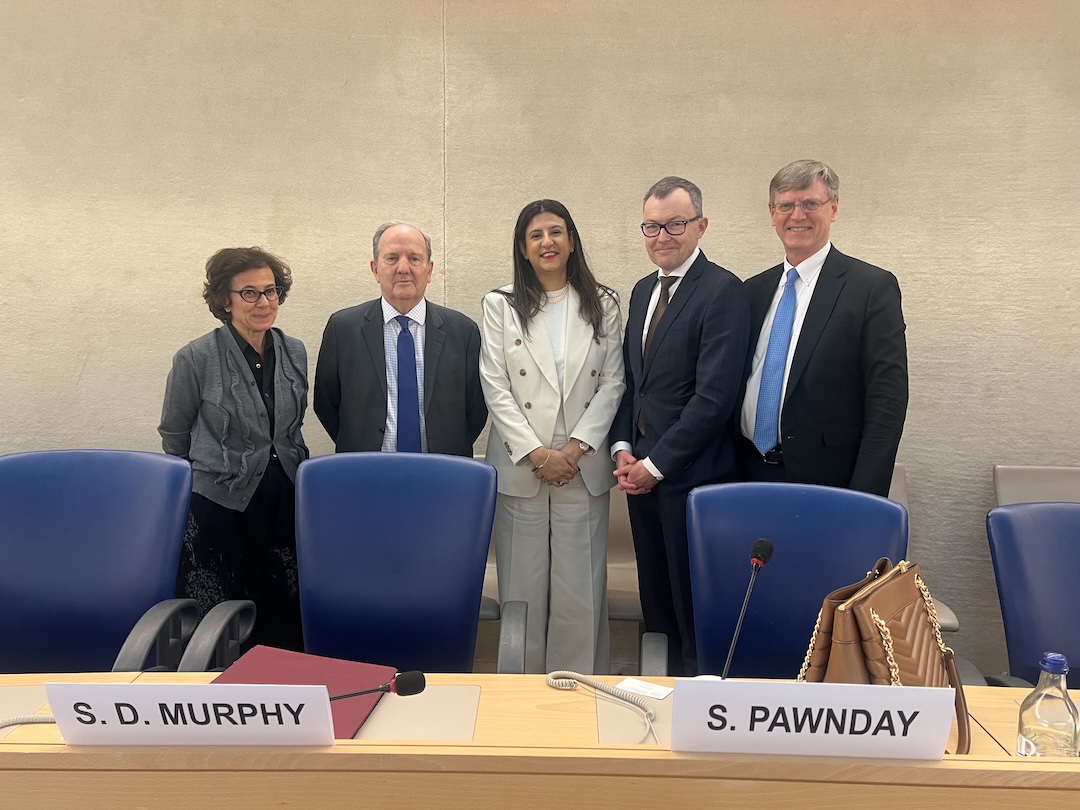On March 5, Professor Sean D. Murphy addressed the United Nations Human Rights Council in Geneva, Switzerland, on the topic of the prevention of genocide. The Human Rights Council is an intergovernmental body within the United Nations system made up of forty-seven States, which is responsible for the promotion and protection of human rights around the globe.
Professor Murphy’s remarks focused on steps that governments should take to adopt national laws and policies that establish domestic awareness of atrocity crimes, including genocide and crimes against humanity. He noted initiatives that could be pursued to educate government officials as to their obligations to prevent and punish such atrocities, including training programs for police, military, militia, and other relevant personnel. Moreover, in response to questions from the floor, he suggested that governments consider, in particular, any appropriate regulations for monitoring social media, hate speech, and even corporate activity that could lead to the commission of atrocities.
The session was chaired by the President of the Human Rights Council and included other speakers, such as the United Nations Deputy High Commissioner for Human Rights.
“It was heartening to see the tremendous interest by States in finding ways to prevent genocide,” said Professor Murphy. “And it was an honor to be asked to present to the Council on this topic, which I studied when drafting articles for a new convention on prevention and punishment of crimes against humanity.”
The U.N. General Assembly decided this past December (Res. 79/122) to move forward with diplomatic negotiations on such a convention, which will be based on Professor Murphy’s work as Special Rapporteur for the U.N. International Law Commission.


